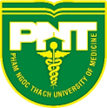Health literacy is a vital component in the realm of public health. It involves the ability of individuals to comprehend health information and services, enabling them to make informed decisions about their health. In today’s world, where health information is abundant and often complex, the importance of health literacy cannot be overstated.
Understanding Health Literacy
Health literacy is not just about reading medical leaflets; it encompasses a range of skills including critical thinking, numeracy, and the ability to navigate the healthcare system. It’s about understanding prescription labels, communicating effectively with healthcare providers, and interpreting test results.
Impact on Public Health
The implications of health literacy extend beyond individual health. Communities with high levels of health literacy experience fewer hospitalizations, lower use of emergency services, and generally better health outcomes. Conversely, low health literacy can lead to increased healthcare costs and poorer health status.
Empowering Communities
Enhancing health literacy is key to empowering communities. It involves:
- Educational Initiatives: Schools and community centers can offer programs to improve health knowledge and skills.
- Clear Communication: Healthcare providers should use plain language and effective communication techniques.
- Accessible Resources: Providing health information in various formats (visual, auditory, and written) to cater to different learning styles.
The Role of Digital Technology
In the digital age, technology plays a pivotal role in spreading health literacy. Online platforms and mobile apps can provide tailored health information, interactive tools, and virtual consultations, making health education more accessible than ever.
The Path Forward
Improving health literacy is a collaborative effort. It requires the commitment of healthcare providers, educators, policymakers, and individuals. By investing in health literacy, we pave the way for a healthier, more informed society.
In conclusion, health literacy is not just an individual responsibility; it’s a public health imperative. By equipping individuals with the knowledge and skills to manage their health, we can foster healthier communities and a stronger public health system.
